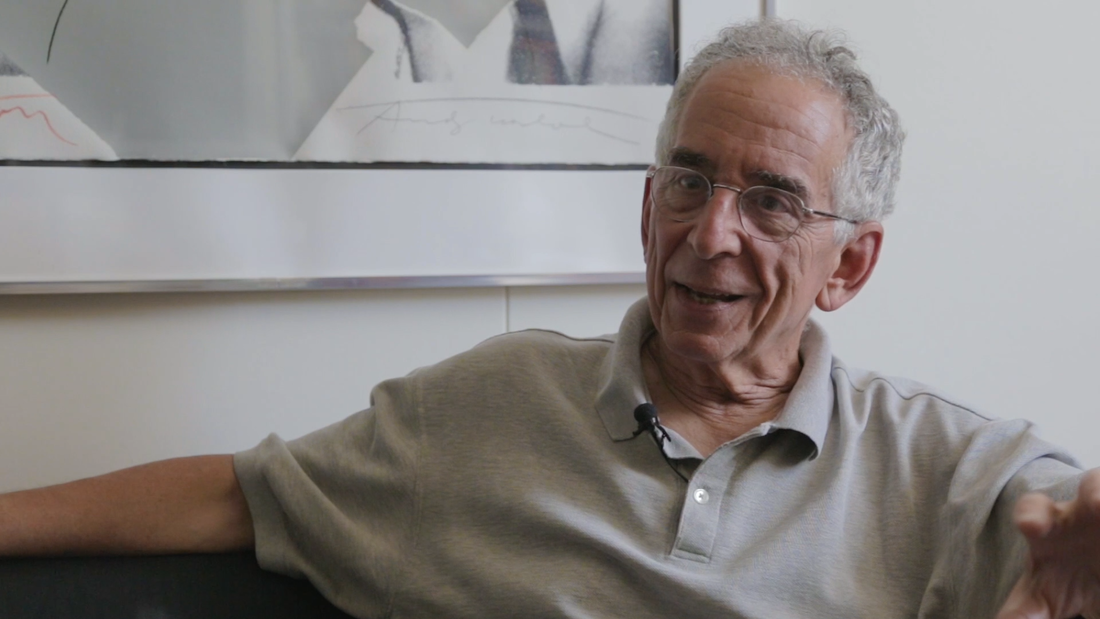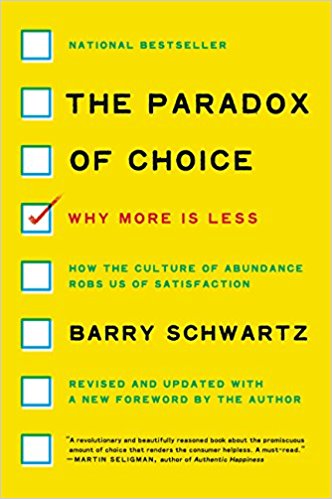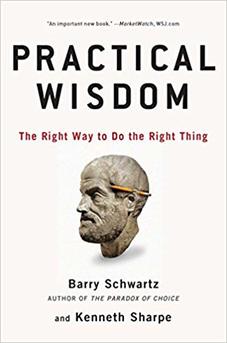Psi
Menu
PART III - THE INTERVIEWS
Chapter 20
Barry Schwartz: The Motherfucker Knows Choice (June 2015)
Barry Schwartz: The Motherfucker Knows Choice (June 2015)
|
Initially, Galen Strawson was supposed to be my last interview. Shortly after meeting him, however, during a “procrastinating-down-a-rabbit-hole-of-Internet” moment, I came across a TED talk titled “The Paradox of Choice,” by American professor of psychology Barry Schwartz. When his 20-minute presentation ended, I just stared at the screen in total shock: how had I not heard of this guy before? With almost every sentence, he was making a point that perfectly captured a feeling I wanted to elicit in my film and that somehow I hadn’t actually honed in on yet. It was like I had set up all these nails on a board and he was hammering them one after the other. His arguments had evidently struck a chord with people at large, too, as his TED talk is one of the most viewed in the library, with over 9 million views. And every time I showed it to my friends, they all just sat back with a bewildered smile, as though he was talking about them personally, perfectly capturing how they felt and hadn’t been able to articulate so clearly before.
Immediately, I knew I just had to get in touch with him. I found his e-mail online, contacted him about the film and within a few hours he replied, agreeing to do the interview.
And so, in July 2015, I flew to Philadelphia to meet with him at Swarthmore College, where he had taught psychology his whole career. Schwartz first rose to prominence with his bestselling book on which his TED talk is based, "The Paradox of Choice," and now teaches at UC Berkeley. His research has focused on decision-making, frequently publishing editorials in The New York Times, illuminating the underlying psychological plagues of western societies. He makes a point of it, too, saying that the problems he is talking about belong to the “modern, affluent, industrialized, democratic societies.” They are basically “the problems of people who don’t have any problems,” as he puts it. And this is an important caveat. But these problems remain crucial; the fact that others are worse off doesn’t mean that these problems don’t matter. Indeed, we should wish that everyone else has it better, and if affluent societies are the model for what is better in terms of potential for well-being, those issues need to be addressed along the way. As I listened to him talk, it struck me that his thesis had been illustrated shortly before by a conversation I had with friends about our movie-watching experience. When I was a kid, I grew up with VHS – I would wait months for a video to come out, and we would not regularly have many new VHS tapes laying around waiting to be seen. When we saw a great movie at the theater, the wait to get the VHS (often up to 6 months) was itself an excitement and the release date etched in the calendar. Once it came out, we'd buy it, watch it and actually really enjoy the whole experience - it was a bit like being in the theatre again. The VHS often even had trailers for other films before the actual movie! Today, we have online streaming platforms with thousands of movies readily available, and the result is this: unless there’s a specific movie I want to see, I’ll regularly end up spending way more time trying to pick a movie than watching one. And when I do eventually pick one, if the film doesn’t capture my interest within 10 minutes, or if another film equally as enticing just happened to pass before my eyes during the selection process, then I’ll be constantly thinking about bailing and switching films. Sometimes, I never even get involved in any film, and finally, more out of exhaustion than interest, I’ll settle on one, make it to about half-way through and then fall asleep or stop and do something else. The bad thing about this is that whatever you watch, it feels botched, incomplete, unfulfilling, and so, what Schwartz told me echoed perfectly with life in general: pick a film and see it through to the end, that’s how you’ll enjoy it.
|
|
As I left, Schwartz handed me his new "business card" designed by comedian Aziz Ansari (who interviewed Schwartz for his book Modern Romance), which bears the following description:
“Barry Schwartz. The motherfucker knows choice.” He sure does. |
<------ Previous Chapter: Galen Strawson
Next Chapter: Thoughts on Free Will ------>
TABLE OF CONTENTS
Next Chapter: Thoughts on Free Will ------>
TABLE OF CONTENTS
[email protected]
© COPYRIGHT 2022. ALL RIGHTS RESERVED.
© COPYRIGHT 2022. ALL RIGHTS RESERVED.


